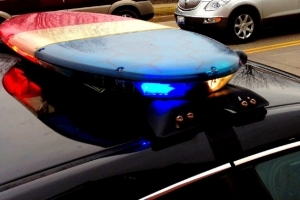
By Illinois Radio Network
SPRINGFIELD – The state’s top cop said Thursday the Illinois State Police won’t be storming places of worship on Easter Sunday, opting for education over arrests.
Still, officials said there could be consequences if people defy the governor’s stay-at-home order. The order was implemented to reduce the spread of COVID-19, the new coronavirus that emerged in late 2019 in China.
Some religious leaders in the Metro East used stories from the Bible to support their call for other church officials to keep their congregations out of from pews this Sunday.
Passover began this week and Easter is Sunday. Gov. J.B. Pritzker’s stay-at-home order runs through April 30. That means gatherings of 10 or more, even for church services, would be in violation.
Joining with Illinois State Police on Thursday in Collinsville, Bishop Henry Phillips of Power of Change Christian Church compared the situation to scripture.
“The very first quarantine in scripture was Noah’s Ark,” Phillips said. “God told Noah to lock his family up because a pandemic flood was coming.”
Phillips said another quarantine example in scripture was the first Passover. He encouraged all faith leaders to hold their services online.
“This is not an issue of separation of church and state, it’s a separation of life and death,” Phillips said.
Other pastors said it was important not to bring congregations together, especially for people who may be more vulnerable to COVID-19.
Joining with pastors on Thursday, Illinois State Police Director Brendan Kelly said law enforcement wasn’t planning on heavy-handed enforcement of the governor’s restrictions on gatherings of 10 or more.
“There’s not going to be law enforcement storming into church buildings, that’s not what’s going to happen here,” Kelly said. “That’s not the way to do this.”
He said the way to keep people from gathering during the pandemic was through education.
“But if people’s lives are put at risk, there are consequences for that down the road if there’s appropriate evidence of that,” Kelly said.
Illinoisans found in violation of the order could face reckless conduct or other charges. Some local governments are also looking at leveling civil penalties on top criminal penalties. Some critics of the order have said it is unconstitutional to keep people from congregating.
Illinois Radio Network can be reached at [email protected].






